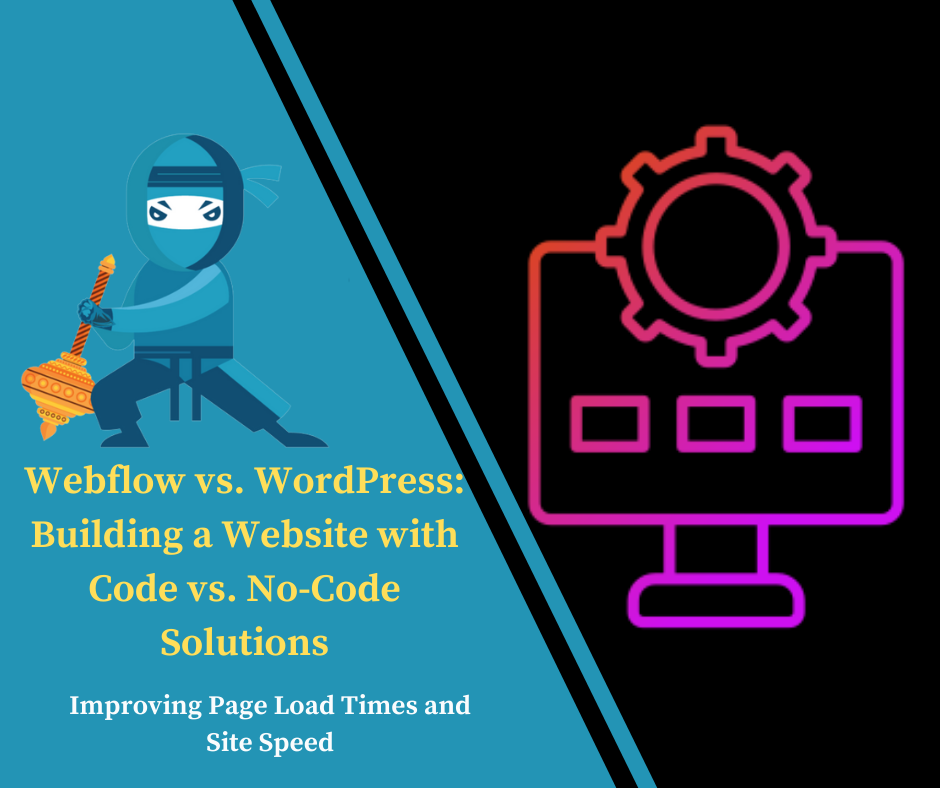Code – Webflow vs. Build a website using 1 specific theme on WordPress No-Code Solutions
The platform you use to create your website is the most important key to making sure that the site looks great and works as intended. Webflow is one of the two most popular options, and there are probably now Webflow and WordPress. Understanding the difference between them—They are two fundamentally different ways to do web development. Webflow is mostly for those who need a no-code solution and visual design interface (And WordPress — traditional CMS and coding accessibility) Both platforms have pros and cons because it depends on your requirements, technical skill level, and what type of website you want to develop.
WordPress, kickstarted in 2003, is a hugely popular website-building platform responsible for powering over 40% of websites worldwide. Although initially designed for blogging, it has grown into a versatile content management system (CMS) capable of handling all kinds of sites – from personal blogs to intricate online stores.
What makes WordPress so appealing is its flexibility. Being open-source, it allows endless customization through plugins and themes created by a vibrant community of developers. While some coding knowledge is handy, WordPress caters to users at all skill levels who are willing to invest time in learning the ropes.
The platform’s user-friendly interface, coupled with its adaptability, has transformed it into a go-to solution for individuals and businesses seeking an affordable, customizable online presence. Whether you’re a blogger, entrepreneur, or a corporate giant, WordPress provides the tools to bring your digital vision to life.
Key Features of WordPress
1. Unlimited Customization Through Plugins
WordPress is a super flexible website platform that lets you customize it however you want. With over 50,000 plugins available, you can add all sorts of cool features like SEO tools, social media integration, and even online stores. It’s like having a giant toolbox at your fingertips.
2. Open Source
But WordPress isn’t just about plugins – it’s also open-source. That means you can tinker with the code and make it your own if you know your way around web development. Want a specific design or functionality? No problem! Just roll up your sleeves and get coding.
3. Large Community and Support
One of the best things about WordPress is its massive community of developers, designers, and regular folks like you and me. They’re constantly creating new plugins, themes, and updates to make WordPress even better. And if you ever get stuck, there are tons of tutorials and forums to help you out.
4. Scalability
Oh, and let’s not forget about scalability. WordPress can handle anything from a tiny personal blog to a massive online store with thousands of products. As your website grows, WordPress can keep up with the right hosting and plugins. It’s like a website that can put on a growth spurt whenever you need it to.
So, whether you’re a tech whiz or a total beginner, WordPress has got your back. It’s flexible, customizable, and supported by a whole community of people who love it as much as you will.
Also read: Shopify vs. Magento vs. WooCommerce: The Ultimate E-Commerce Showdown
Drawbacks of WordPress
1. Technical Complexity
WordPress has its pros and cons. On the downside, it’s not as user-friendly as some website builders like Webflow. You might need to learn a bit of coding (HTML, CSS, or PHP) to customize your site the way you want.
2. Reliance on Plugins
Another potential issue is the reliance on plugins. While plugins add tons of functionality, using too many can slow your site down and cause compatibility headaches. Plus, if you don’t keep those plugins updated, they could create security risks.
3. Ongoing Maintenance
Speaking of updates, that’s another potential hassle with WordPress. Since you’re managing the hosting and backend yourself, you’ve got to stay on top of software updates and security patches. If you let things slide, your site could get hacked. So in a nutshell, WordPress gives you flexibility but requires some tech skills and ongoing maintenance to keep things running smoothly. For total beginners, an easier website builder might be a better starting point. But if you’re willing to put in a bit of work, WordPress lets you create pretty much any type of website you can dream up.
Webflow vs. WordPress: Key Comparisons
Ease of Use: Webflow and WordPress are both website-building platforms, but they differ in terms of user-friendliness and customization options. Webflow is a breeze for non-techies – it’s a visual editor that doesn’t require coding knowledge. WordPress, on the other hand, can be a bit trickier, especially when it comes to making custom changes.
Customization: WordPress has an edge when it comes to flexibility. Since it’s open-source, you can go wild with customizations if you know what you’re doing. Webflow lets you customize too, but within the boundaries of its user-friendly interface.
Cost: -wise, WordPress can be the more budget-friendly option, but only if you stick to free themes and plugins. Once you start adding paid extras and hosting, the costs can pile up. Webflow is an all-in-one package with hosting included, which could make it pricier long-term.
Hosting: Speaking of hosting, that’s another key difference – Webflow hosts your site for you, while with WordPress, you need to find your hosting service.
SEO: Both platforms are solid for SEO. Webflow comes with built-in SEO tools right out of the box. WordPress requires plugins for advanced SEO tactics but gives you more control if you’re an SEO whiz.
In summary, Webflow is the easier, more user-friendly option best suited for basic websites. WordPress requires more technical know-how but offers unbeatable flexibility for complex sites and custom builds.
FAQs
Which is better for beginners, Webflow or WordPress?
For total newcomers, Webflow tends to be an easier starting point. Its visual design tools let you build websites without touching code, making it super beginner-friendly. WordPress has more going on under the hood, so there’s a little more to wrap your head around initially. But if you’re willing to climb that small learning curve, it unlocks way more customization down the road.
Can I switch from Webflow to WordPress later?
Absolutely! You can always migrate to a new platform if your needs change. Just know that moving your content and recreating your design on WordPress would involve some technical lifting. It’s doable, but not necessarily a quick flip of a switch.
Which platform is better for SEO: Webflow or WordPress?
They’re both solid SEO options right out of the box. Webflow has built-in SEO tools to optimize your pages. And WordPress lets you go crazy customizing every SEO detail using plugins like Yoast. At the end of the day, applied strategically, either platform can rank your site.
Is WordPress better for E-Commerce than Webflow?
While both support online stores, WordPress is the more battle-tested e-commerce solution – especially for larger operations. Platforms like WooCommerce plug right into WordPress, giving you a wealth of shopping cart features and integrations to build a robust online store.
Which platform is more scalable?
If you’re building something modest in scope, Webflow can scale to meet those small-to-medium needs. But WordPress is built to expand as your ambitions grow. Its flexibility with plugins and coding customizations means your website can evolve alongside your business.
Conclusion
Both Webflow and WordPress are great platforms with their strengths and weaknesses. Webflow is perfect if you want a user-friendly, no-code solution and care a lot about design. WordPress, on the other hand, is a solid choice if you need more flexibility and scalability, and you’re okay with dealing with some technical stuff. At the end of the day, your pick between Webflow and WordPress should come down to your technical know-how, budget, and what kind of website you’re trying to build.








